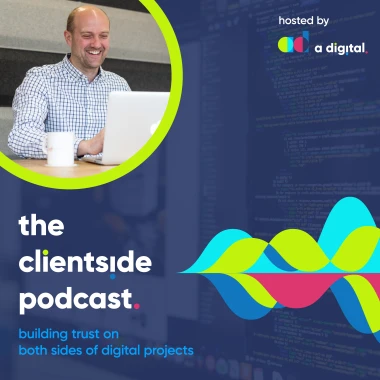
Digital Skills with Veronica Swindale
The Clientside Podcast
50 min Veronica Swindale ,
Andrew Armitage is joined by Veronica Swindale, the MD of the North East Sales and Marketing Academy (NESMA) to talk about the digital skills gap in digital and marketing based roles.
In this episode we hear about how businesses need to create an environment of continual development and the reason for the skills gap we face is not because of a shortage of people, but a lack of high level qualifications. The pace of change in marketing is such that as soon as people become qualified, the marketplace has already moved on and education invariably can't keep up with what's current.
We also talk about culture and the importance of strategic planning, so rather than just telling stories, people understand why they're being told it, and for what, and who's benefit.
Finally, you can test your own digital skills with the A Digital Scorecard. Visit https://scorecard.adigital.agency to find out more.
Enjoy the episode!
Listen on your smart device or read the transcript below
You've got to have that continuous learning because the market is changing around this all the time, so the better employer will be one who is good at identifying what skills his market needs and then how well his workforce matches those needs.
Veronica Swindale Tweet